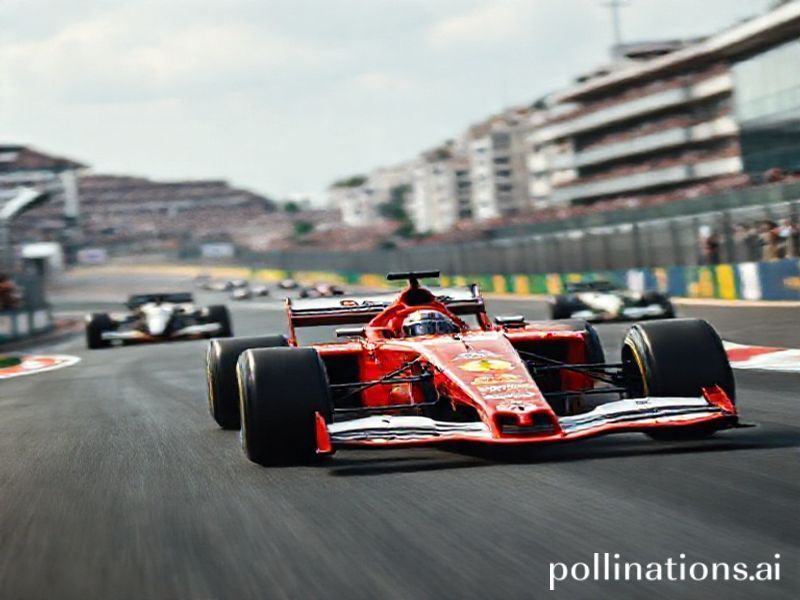F1 Race: The Global Phenomenon That’s More Than Just Cars and Speed
**F1 Race: The Global Phenomenon That’s More Than Just Cars and Speed**
Buckle up, folks, because we’re diving headfirst into the high-octane world of Formula 1, the global phenomenon that’s got the internet buzzing louder than a V8 engine at full throttle. If you’ve been living under a rock (or just haven’t scrolled through Twitter lately), F1 is trending globally, and it’s not just because of the flashy cars and speed that makes your stomach flip. There’s a cultural shift happening, and it’s got more curves than the Monaco Grand Prix.
**The Cultural Context: Fast Cars, Faster Fame**
F1 has always been a sport of glamour and prestige, a playground for the rich and famous. But in recent years, it’s evolved into a cultural juggernaut, thanks to a perfect storm of factors. First, there’s the Netflix effect. The documentary series “Drive to Survive” has turned F1 into a global soap opera, with fans obsessing over driver rivalries, team drama, and the high-stakes world of motorsport. It’s like “The Real Housewives,” but with more carbon fiber and fewer plastic surgeries.
Then there’s the internet culture factor. Memes, TikToks, and Twitter banter have turned F1 into a digital watercooler. Who can forget the viral “Let’s Go, Max!” chants or the endless debates about whether Lewis Hamilton’s shaved head is a fashion statement or a cry for help? The sport has become a playground for wit and banter, drawing in a new generation of fans who might not even know the difference between a DRS and a DRM.
**The Social Impact: More Than Just a Sport**
F1 isn’t just about speed and glamour; it’s also about pushing boundaries and making a difference. The sport has become a platform for social and environmental issues, with teams and drivers using their influence to champion causes like diversity, equality, and sustainability.
Take Lewis Hamilton, for example. The seven-time world champion has been a vocal advocate for racial equality, using his platform to raise awareness about systemic racism and support the Black Lives Matter movement. His advocacy has sparked conversations and inspired change, both within and outside the world of F1.
Meanwhile, the sport itself is going green, with a push towards sustainability and reducing its carbon footprint. From hybrid engines to eco-friendly paddocks, F1 is proving that you can be fast and responsible at the same time.
**Why It’s Significant: The Future of F1**
So, why is all this significant? Well, for starters, F1 is no longer just a sport; it’s a cultural phenomenon that transcends borders and languages. It’s a melting pot of technology, entertainment, and activism, attracting a diverse and passionate fanbase.
Moreover, the sport is evolving, embracing change and innovation in a way that resonates with the modern world. It’s not just about who has the fastest car; it’s about who can push the boundaries of what’s possible, both on and off the track.
In conclusion, the global trend of F1 is a testament to the sport’s ability to adapt, innovate, and inspire. It’s a high-octane blend of speed, drama, and social impact, and it’s taking the world by storm. So, whether you’re a die-hard fan or a curious newcomer, there’s never been a better time to buckle up and join the ride.







